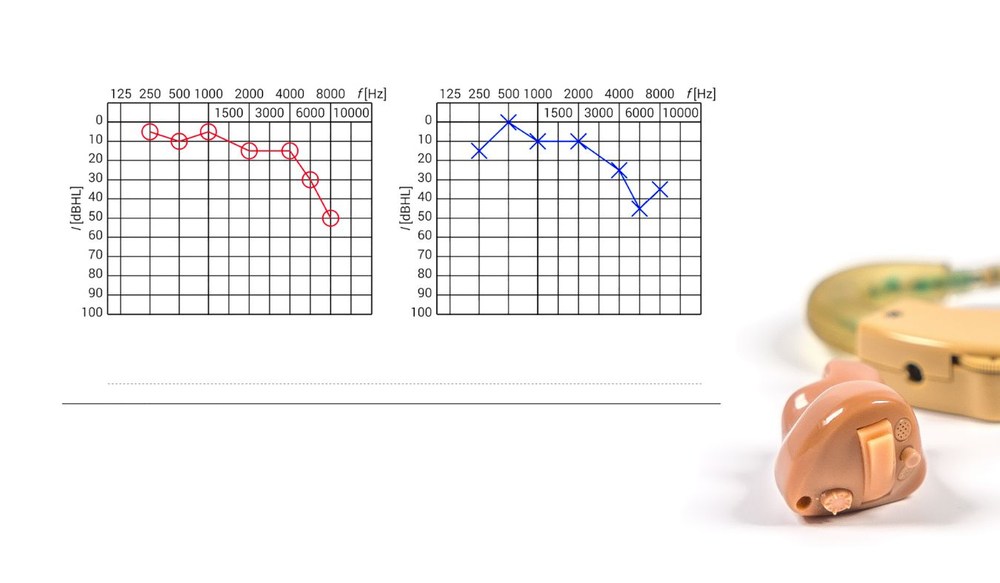Hearing Health Myths Debunked
When it comes to our hearing health, many of us have picked up

The significance of your occupation in relation to your hearing health is frequently overlooked. Certain professions, characterized by regular exposure to loud environments, pose a heightened risk of hearing issues. These occupational hazards are a reality for many individuals and can profoundly impact their well-being as time progresses. This article aims to shed light on such professions, delineating the risks they entail and offering practical guidance on preserving optimal hearing health despite these challenges.
Prioritizing your hearing health in the workplace is paramount. Utilizing protective equipment becomes imperative in noisy settings, while taking periodic breaks from loud environments can also prove beneficial. Consider the contrast between the daily experiences of a librarian and a construction worker. While the librarian is surrounded by hushed tones and the gentle rustle of pages, the construction worker contends with the incessant clamor of jackhammers and heavy machinery.
The construction worker, consistently exposed to elevated noise levels, faces a markedly heightened risk of hearing impairment over time. This juxtaposition underscores the crucial importance of recognizing workplace noise exposure and its potential ramifications on hearing health.
Certain occupations, like construction, mining and manufacturing, pose a significant risk of noise-induced hearing loss due to sustained exposure to loud sounds. Similarly, roles within the music industry or military service carry notable risks. Musicians, DJs and soldiers encounter frequent exposure to high decibel levels, which can gradually lead to hearing deterioration over time.
Curious about preserving your hearing on the job? Consistently using ear protection like earplugs or earmuffs can mitigate the impact of loud noise on your ears. Additionally, taking breaks from noisy environments whenever possible can provide your ears with much-needed rest.
Signs that your job is affecting your hearing may include frequent ringing in your ears after work or difficulty hearing conversations in noisy surroundings. Unfortunately, most cases of noise-induced hearing loss are irreversible. However, with professional guidance and appropriate equipment like hearing aids, you can enhance your hearing ability and communication effectiveness.
The daily routine of a construction worker is filled with the constant noise of heavy machinery, power tools and roaring engines. This pervasive noise, integral to their work environment, poses a significant threat to their hearing well-being. Therefore, for construction workers, proactive measures to protect their hearing health are essential.
In efforts to protect their hearing, construction workers are encouraged to use hearing protection devices tailored for industrial settings, like earmuffs or earplugs. Earmuffs offer robust noise attenuation and are well-suited for extended exposure to high noise levels. Conversely, earplugs are compact and portable, catering to workers who frequently move about. Properly worn, both types of hearing protection afford effective noise reduction, helping to maintain the long-term auditory health of construction workers amidst the noise of the job site.
For audio engineers and music professionals, the nature of their work presents unique challenges in maintaining hearing wellness. Their daily tasks involve manipulating sound, often at elevated volumes, which can pose risks to their auditory health over time. A study featured in the Journal of Occupational and Environmental Hygiene revealed that 28% of professional musicians experience tinnitus due to their occupational exposure to loud noise. This statistic underscores the importance of proactive measures to protect their hearing.
Custom-molded earplugs are a popular choice among musicians for hearing protection. Tailored to fit the individual ear canal, these earplugs provide a comfortable and secure seal, offering maximum protection against noise exposure. Available in various attenuation levels, custom earplugs allow musicians to adjust sound reduction while preserving the clarity and fidelity of the music they hear. Custom earplugs often feature flat frequency response characteristics, ensuring that music remains balanced and natural even with attenuation.
In-ear monitors (IEMs) serve as another essential tool for musicians seeking both hearing protection and improved sound monitoring on stage. These devices deliver personalized audio mixes directly to the wearer’s ear canal, enabling clear communication among bandmates without relying on traditional stage monitors or amplifiers. Custom-molded IEMs, preferred by many professionals, offer superior comfort, sound isolation and audio fidelity compared to generic models, providing comprehensive protection and enhanced control over sound levels.
While emergency personnel may not immediately come to mind in discussions of high-risk occupations for hearing loss, their work environments often expose them to loud sirens, noisy equipment and high-stress situations that can impact their hearing health. From ambulance drivers to firefighters, these dedicated individuals face an often-overlooked risk of auditory issues.
Despite their pivotal role in society, emergency responders encounter challenging conditions that can take a toll on their hearing over time. The constant exposure to loud noises amidst urgent situations underscores the importance of awareness and preventative measures. Some responders utilize earmuffs equipped with built-in communication systems, allowing for effective communication while still blocking harmful noise. Additionally, custom-molded earplugs offer a comfortable and reliable fit, ensuring protection against loud sounds without compromising situational awareness. These tailored solutions are essential for preserving the hearing health of emergency responders, enabling them to carry out their critical duties safely and effectively in demanding environments.
Soldiers are exposed to substantial risks of hearing impairment due to the intense levels of noise generated by gunfire, explosions and heavy machinery in combat and training scenarios. This prolonged exposure to loud noises without adequate hearing protection can result in irreversible damage to their hearing, impacting their ability to effectively communicate and maintain situational awareness on the battlefield. Furthermore, unpredictable noise levels during combat situations make it challenging for soldiers to consistently protecting their hearing.
To mitigate the risk of hearing loss among soldiers, military organizations prioritize the deployment of specialized hearing protection tailored for combat environments. Tactical earplugs equipped with filters are commonly used, allowing soldiers to hear ambient sounds while still offering protection against loud noises like gunfire and explosions. Additionally, earmuffs featuring electronic noise-canceling capabilities are frequently employed to enhance hearing protection while preserving communication capabilities. Soldiers undergo education on the importance of proper hearing protection and are encouraged to wear hearing protection consistently during both training exercises and combat missions to protect their auditory health and overall effectiveness in the field.
In the realm of manufacturing, workers face similar challenges with noise-induced hearing loss due to the constant hum and clatter of machinery in their environment. Despite being frequently overlooked, this continuous exposure poses a significant threat to the hearing health of manufacturing employees.
For industrial workers, earmuffs with noise reduction ratings (NRR) tailored to their specific work environment are among the most recommended types of ear protection. These earmuffs typically feature adjustable headbands and cushioned ear cups to ensure a comfortable fit and an effective seal against the ears, effectively reducing noise exposure. Additionally, some industrial workers opt for custom-molded earplugs crafted from durable materials that conform to the unique shape of their ear canal, providing dependable noise attenuation while allowing for comfortable long-term wear. These measures are essential for preserving the hearing health of manufacturing workers and minimizing the risk of noise-induced hearing loss in their profession.
While the aviation industry may exude glamour and excitement, its employees face significant noise hazards that can impact their hearing health. From ground crew members to pilots, the constant exposure to loud engine noise and high-frequency radio communication poses substantial risks.
These professionals encounter noise levels well above safe limits on a regular basis. For example, ground crew members working near jet engines may be subjected to sound levels reaching up to 140 decibels – levels known to cause immediate damage to hearing. Similarly, pilots and air traffic controllers contend with the ongoing chatter of radio communication, which can lead to long-term hearing issues.
To protect their hearing health, proactive measures are essential for professionals in the aviation industry:
Regular hearing assessments hold immense significance, particularly for individuals in high-risk occupations. These evaluations play a pivotal role in the early detection of potential issues. For those routinely exposed to loud noises at work, such assessments can identify any changes in hearing before they escalate into serious problems, enabling timely intervention and substantially improving long-term hearing health.
These assessments provide a platform for individuals to discuss any concerns or symptoms with an audiologist. This dialogue can yield personalized advice and strategies to better protect ears on the job. Prioritizing hearing care today ensures individuals can continue pursuing their passions and professions without compromise in the future.
Maintaining your hearing health, especially in high-risk professions, is essential. With the right precautions and regular check-ups with an audiologist, you can reduce the risk of noise-induced hearing loss.
If you’re concerned about your hearing health due to occupational hazards or simply wish to learn more about protecting your ears at work, we invite you to reach out to us at Hear In MetroWest at (774) 375-0373. Our team of dedicated professionals is here to guide and support you towards optimal hearing health. We are committed to providing personalized care tailored specifically for you and your unique needs.

When it comes to our hearing health, many of us have picked up

Just like no two people are exactly alike, everyone experiences hearing

Hearing tests might seem like a complex puzzle, filled with different